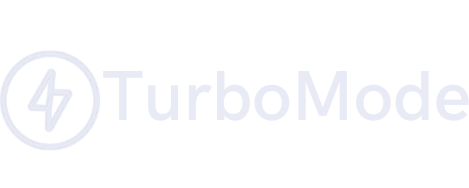Introduction
As artificial intelligence becomes integral to workplace operations, it brings transformative benefits—but also raises significant ethical questions. Integrating AI into workplace practices must be approached with careful consideration of issues such as data privacy, transparency, and fairness. According to a report by the Ethics Advisory Group, 65% of employees express concerns about AI’s impact on job security and privacy. This article examines the ethical considerations when implementing AI, outlines best practices for responsible adoption, and highlights how platforms like TurboMode AI can contribute to ethical AI integration.
Understanding AI Ethics in the Workplace
Ethical concerns in AI integration typically focus on:
- Data Privacy:
Protecting sensitive information and ensuring that AI systems comply with data protection regulations. - Transparency:
Making AI decision-making processes understandable to employees and stakeholders. - Fairness and Bias:
Ensuring that AI algorithms do not perpetuate existing biases or create discriminatory practices. - Job Displacement:
Addressing fears that AI will replace human roles without adequate support for affected workers.
Data Privacy and Security
AI systems process vast amounts of data to function effectively. It is essential to implement robust security measures, such as:
- Advanced Encryption:
Protecting data in transit and at rest. - Access Controls:
Limiting data access to authorized personnel. - Compliance with Regulations:
Adhering to standards such as GDPR or CCPA to safeguard personal data. Research by IBM indicates that companies with stringent data protection policies are 30% less likely to experience data breaches.
Transparency and Accountability
Transparency in AI is vital to building trust among employees and stakeholders. Best practices include:
- Clear Communication:
Inform employees about how AI is used in decision-making processes. - Explainable AI:
Implement AI systems that provide understandable explanations for their outputs. - Regular Audits:
Conduct audits to ensure AI systems are operating fairly and effectively. This approach not only builds confidence but also helps identify and mitigate any unintended biases in AI algorithms.
Fairness and Bias Mitigation
AI systems can inadvertently perpetuate biases present in training data. To mitigate this:
- Diverse Data Sets:
Use diverse and representative data to train AI models. - Bias Audits:
Regularly evaluate AI outputs for bias and take corrective measures. - Inclusive Development:
Involve stakeholders from diverse backgrounds in the AI development process. These strategies help ensure that AI contributes positively to workplace fairness and equality.
Job Displacement and Workforce Transition
While AI can enhance productivity, it may also disrupt traditional job roles. Responsible AI integration involves:
- Reskilling Programs:
Provide training and upskilling opportunities for employees whose roles are affected by AI. - Transparent Communication:
Engage with employees about potential changes and the future of work. - Collaborative Innovation:
Focus on using AI to augment human capabilities rather than replace them entirely. This balanced approach fosters a supportive work environment that values both technological innovation and human contribution.
TurboMode AI
TurboMode AI is designed with ethical considerations in mind. It automates task execution by extracting actionable items from conversations, all while ensuring data privacy and transparency.
“We’re shifting the game from managing work to getting work done.”
TurboMode AI adheres to strict ethical standards, making it a reliable choice for organizations committed to responsible AI adoption. Book a demo today to learn more.
Best Practices for Ethical AI Integration
- Establish Ethical Guidelines:
Create a framework for AI usage that addresses privacy, transparency, and fairness. - Engage Stakeholders:
Involve employees, management, and external experts in discussions about AI implementation. - Continuous Monitoring:
Implement systems to continuously monitor AI performance and address ethical concerns promptly. - Provide Training:
Educate your workforce about AI technologies and their ethical implications. - Leverage Third-Party Audits:
Use independent audits to ensure that your AI systems meet ethical standards.
Case Studies and Industry Examples
A global financial institution implemented an AI ethics program that included regular bias audits and transparent communication channels. As a result, employee trust increased by 25%, and the institution was recognized for its responsible AI practices. Similar success stories highlight that ethical AI integration can lead to improved outcomes and a more engaged workforce.
Future Trends in AI Ethics
As AI technology evolves, the importance of ethics will only grow. Future trends may include:
- Regulatory Advancements:
New laws and standards that further protect data privacy and promote transparency. - Improved Explainability:
Advances in explainable AI will make it easier for users to understand how decisions are made. - Ethical AI Certifications:
Organizations may seek certifications to demonstrate their commitment to ethical AI practices.
Conclusion
Ethical considerations are paramount when integrating AI into workplace practices. By addressing data privacy, transparency, fairness, and workforce impacts, organizations can harness the benefits of AI while maintaining trust and integrity. Platforms like TurboMode AI exemplify how responsible AI adoption can drive productivity without compromising ethical standards. Embrace ethical AI practices to create a fair, transparent, and innovative workplace that benefits everyone.






